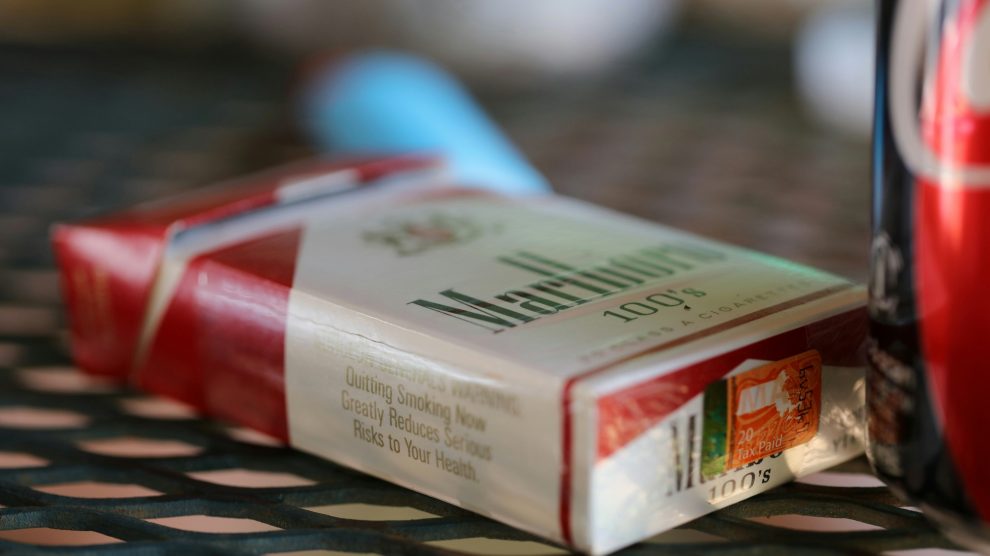Counterfeit and contraband tobacco products represent a bigger health hazard than regulated tobacco, while porous borders are a security risk for NATO’s eastern and south eastern flanks.
A unnamed smuggler operating at the Romanian Ukrainian border spoke to a local media outlet some years ago confessing something everyone already knew, namely that poverty speaks for itself.
“As long as people remain poor, demand for smuggled cigarettes will never go away. And neither will we,” he said.
From Greece to Romania trading in illicit goods has repeatedly proven to constitute a social, economic and security risk for the entire region.
The Western Balkans has long been part of a route through which smuggled goods especially cigarettes make their way to Western Europe. Recent data has revealed that about 11 per cent of smokers in the Balkan region buy tobacco products on the grey market.
Montenegro for example has a record of 27.9 per cent of smokers in the country relying on smuggled tobacco products, with a total of 581,000 people across the Western Balkan region buying illicit cigarettes off the grey market.
Former Montenegrin President Milo Đukanović, who ruled the small Balkan country for nearly three decades, is alleged to have made a fortune by means of cigarette smuggling during the Yugoslav wars of the 1990s.
Health hazards
Illicit trade has multiple consequences. Counterfeit and contraband tobacco products on the market represent a bigger health hazard than regulated tobacco. Contraband activities are connected to various other criminal activities and security risks that piggyback off the routes used by smugglers to get the goods into these countries.
This phenomenon is by no means limited to the Balkans. Entry points into the EU are numerous. For example, France has fought the flow of illegal cigarettes coming from Algeria for many years. The port in Antwerp—Europe’s second-largest—has also been used to bring illicit goods to the continent. Yet, one of the most lucrative regions over the past decade for tobacco smugglers is on the EU’s eastern border and the adjacent region.
Due to its location Greece has long been an entry point for smuggled goods into Europe. At the end of last year investigators seized over 50 kilogrammes of illegal tobacco estimated to be worth around 13 million euros. The head of the Greek based network was running operations across 10 countries and amassing millions of euros in illegal profits. Illicit trade is costing the Greek government 624 million euros annually, with one in four cigarettes smoked by consumers there being trafficked illegally.
Bulgaria is the most relevant country in the hub because it has significant inflows and outflows of illicit tobacco products. In 2021, 0.2 billion counterfeit and contraband (C&C) cigarettes were consumed by Bulgarian smokers.
The market share of C&C was 1.6 per cent of the total cigarette market, costing Bulgarian government an estimated 25 million euros in total tax revenue. The country is now trying to curb the illicit trade of vaping products. Since the beginning of the year authorities have seized 40,000 illegal vapes but that apparently is just the tip of the iceberg. Officials in Bulgaria are looking into banning vaping products altogether.
Improving border policing and enforcing stricter controls could have a better effect on curbing illicit trade. A potential ban could lead to more illegal trade and a larger share of health-hazardous vape products with unclear origin, quality and composition in the market. People will likely seek alternatives available now on the black market.
Porous borders are a security risk
Next-door neighbour Romania is having problems of its own. Illegal trade is big business in Romania’s eastern region, one of the poorest in the EU, especially in the areas bordering Ukraine and Moldova.
Data over the last few years show that one in every 10 contraband cigarettes in the EU is smoked in Romania, where the black market accounted for 8.6 per cent of the market in September 2024. For those living close to the country’s eastern borders, cigarette smuggling has become a way of life.
There, the problem is not only about smuggling tobacco but also about the routes these smugglers use, opening new avenues for criminal activities and how that is impacting NATO’s eastern flank.
These routes end up being used not only by smugglers but also by various organised crime groups, weakening the EU’s border at the time of conflict. Public funds are also squandered. According to Stop Contrabanda, a website monitoring contraband cigarette busts, Romania is losing half a billion euros yearly, money that could have gone into the state coffers. Aside from squandered money, with a war raging next door, security is on everyone’s mind.
Ukraine, Romania’s neighbour, is also losing much needed money for reconstruction because of illicit trade. According to GLOBSEC, a think-tank, in Ukraine, the illicit tobacco trade resulted in revenue losses of as much as 20.5 billion hryvnias (505 million euros) in non-paid or underpaid taxes in 2022 alone.
Failing to secure the borders and curbing illicit trade is detrimental to Europe as a whole, regardless if the entry points are the Balkans or somewhere else. A porous eastern border on NATO and the EU’s eastern and south-eastern flank is dangerous in a time of war and dire need for more unity.
Photo by David Trinks on Unsplash.
At Emerging Europe, we use an integrated approach centred around market intelligence to help organisations understand trends and strategically position themselves for success.
Learn how our solutions can help you thrive in the region:
Company and Services Overview | Strategic Advantage.

